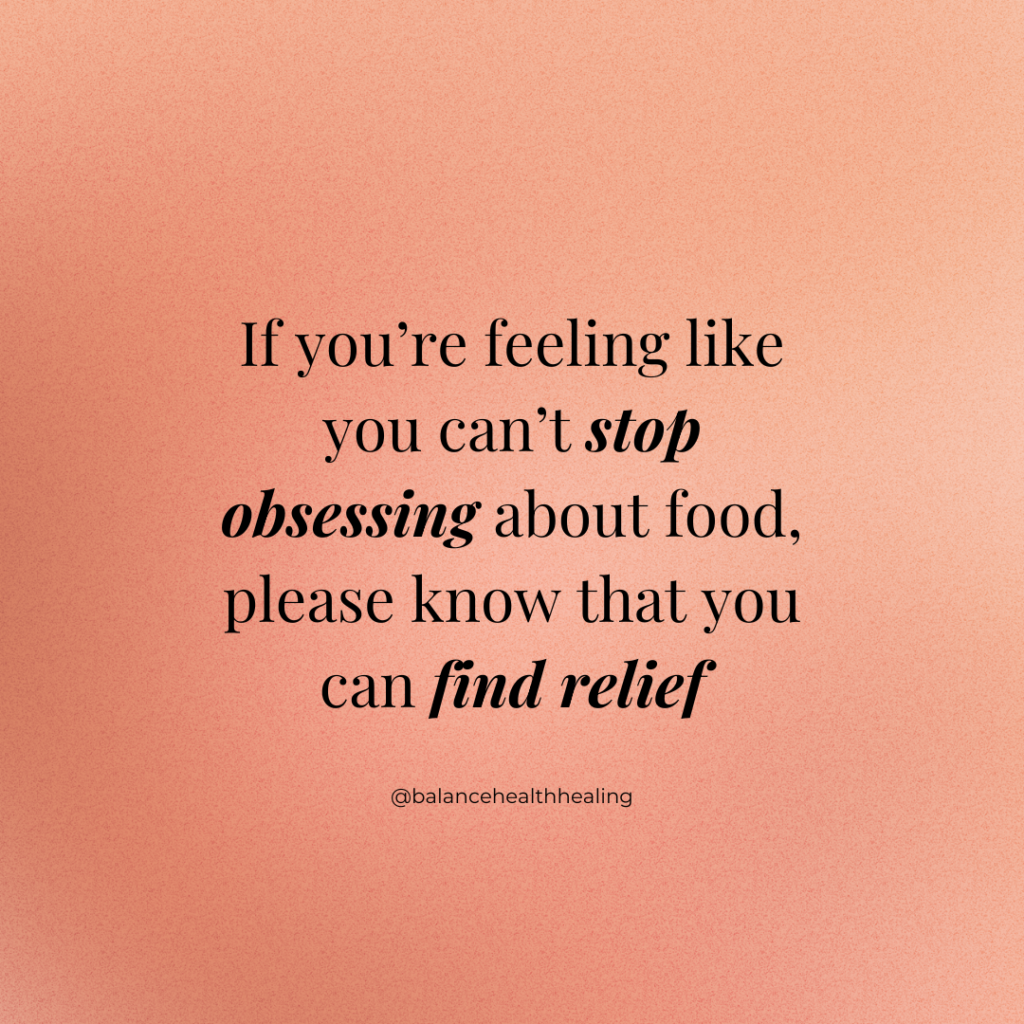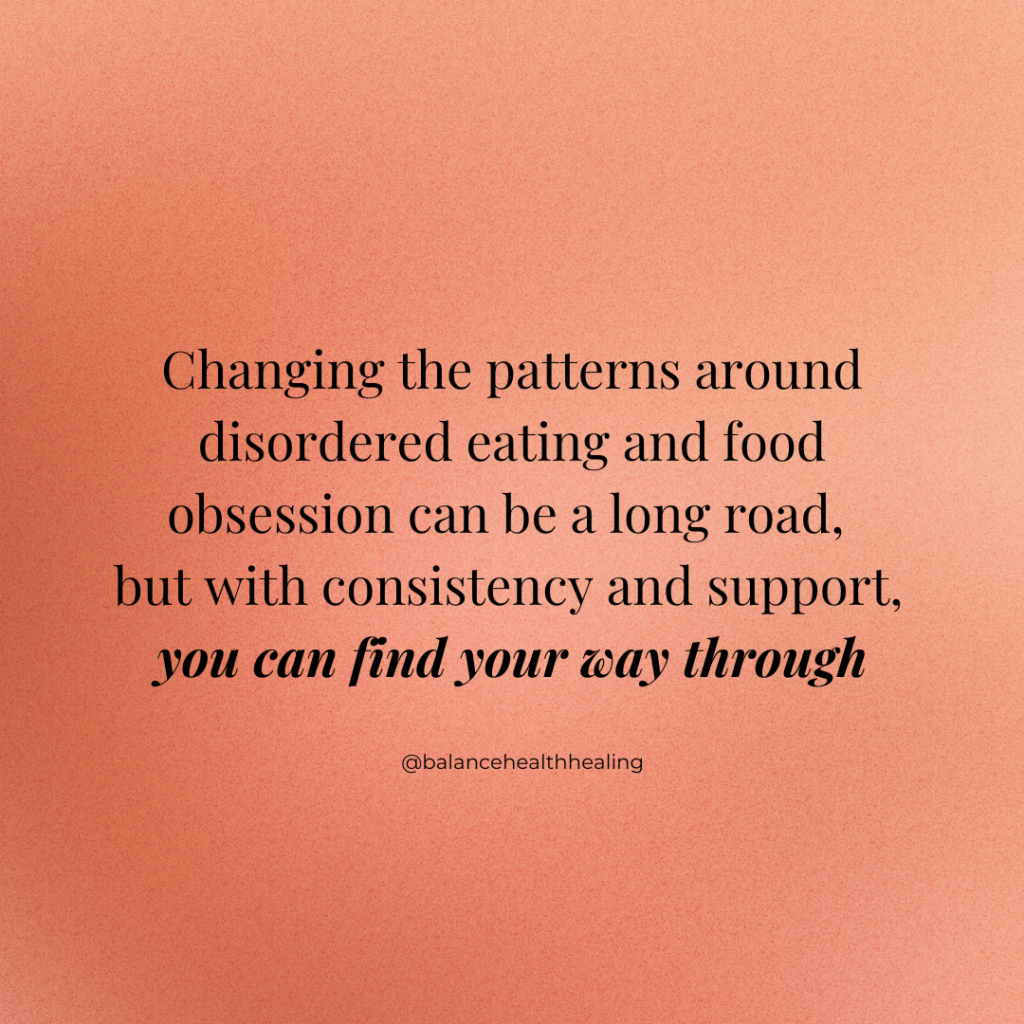I feel like I’m thinking about food all the time. From the second I wake up, I’m stressed about what I ate yesterday, feeling guilty for how much I ate and the foods I chose. Food is always on my mind. If I’m not worrying about what I just ate, or what’s on my plate right now, I’m obsessing over the next meal. It feels like I’m thinking about food 100% of the time, and I don’t know how to not think this way. I feel like my head is buzzing with numbers–calories, weight, macros, everything–and I can’t concentrate on anything else.
If you relate to the thoughts above, you know how hard it can be to feel like you can’t stop thinking about food. The constant, obsessive thoughts, the never-ending stress and worry about food, the anxiety and guilt, can all feel so overwhelming. If you’re feeling like you can’t stop obsessing about food, please know that you can find relief. I won’t pretend like there’s some magical way to stop obsessing about food instantly, but there are some things that can help.
 1: Eat enough, often enough
1: Eat enough, often enough
Preoccupation with food (worrying about food being available, thinking about food when not eating, thinking about future meals) is in part, a natural, biological consequence of being undernourished. Thinking about food can be a normal, short-term hunger cue that helps you know it’s time to eat. However, if you are chronically not eating enough food, or not eating consistently, this normal hunger cue can turn into persistent preoccupation or obsession about food. Whether you have an eating disorder or not, thinking about food all the time can be a sign that you aren’t eating consistently enough. Inconsistent nourishment, whether from an eating disorder, another illness, food insecurity, or another reason, can lead to obsessive thoughts about food. The good news is that if you begin to eat enough, often enough, you are likely to start to find that you think about food less often than you do when you are undereating or eating sporadically. There is no substitute or “hack” for bypassing the psychological consequences of undereating. Eating enough, often enough, is key to reducing obsessive thoughts about food.
2: Engage with other parts of your life
If you have been stuck in a pattern of anxiety or worry about eating, it can feel hard to focus on anything but food. Focusing on food may have been an escape, a coping mechanism, or a necessity in the past for many reasons. However, continuing to put your energy into worries about food eventually ends up making life feel pretty small. 
If you’ve noticed that most of your hobbies and interests are connected to food, exercise, or appearance, it might be time to intentionally start engaging with other interests and activities. Give yourself the chance to expand your priorities and experiences beyond the reaches of obsession about food. Doing so can literally change your brain! Neuroplasticity, or the ability for our brains to change their neural networks in response to new experiences and learning, is part of how you can find relief from obsession about food. The more your actions reinforce an obsession with food, the harder it will feel to think about anything else. BUT, the more your actions and experiences reinforce connection with priorities other than food and weight, the more your thoughts and emotions will shift away from food obsession, and toward greater balance.
3: Give it time
If you are working on doing the things I mentioned above (nourishing yourself adequately and consistently, and engaging with parts of your life that aren’t connected to food) and it still feels like you’re stuck obsessing over food, remember to give it time. Changing your habits and your brain takes repetition and time to solidify. Don’t give up! Stick with it, and gather support around you as you make these changes. Changing the patterns around disordered eating and food obsession can be a long road, but with consistency and support, you can find your way through.

